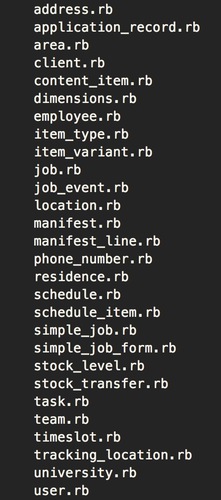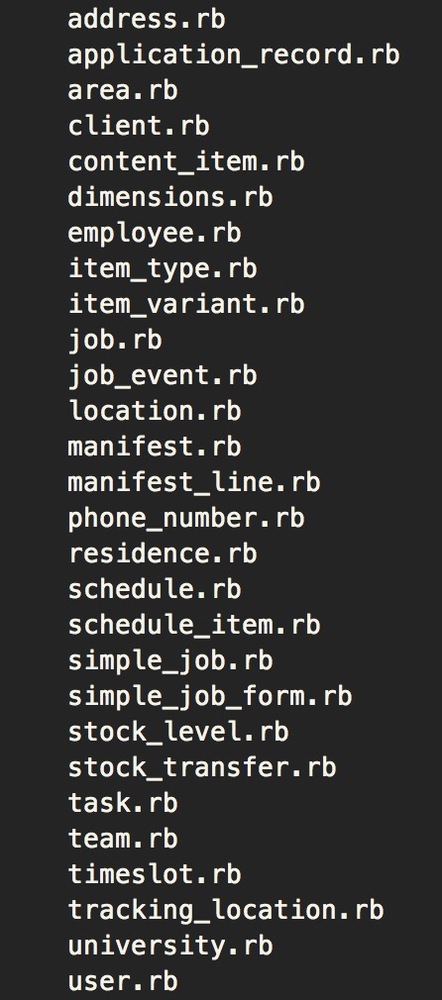It’s been a long time since I wrote much, and it’s always interesting to look back on what I write here after a few years. So here comes a loosely coupled pile of thoughts around the economy, business, and the world situation.
Signal vs Noise
There’s a lot of noise in the news - it’s hard to make out what is important and what isn’t. Things that are just noise: #MeToo which is in the process of being overtaken by #DeleteFacebook, which will also go nowhere. There’s no fundamental changes here. Both of these things will be about as meaningful as Occupy Wallstreet was.
There’s signal in Brexit, Russia, The Wall, and Chinese trade tariffs - the world is becoming more closed. Maybe people see a cake that’s about to shrink, and they want to maintain their slice of it. Maybe political elites are running a divide-and-conquer strategy in the face of rising transparency and easier mobilization of right-minded people. I don’t know.
China
Global sentiment is turning against China. Our idea of offshoring low-skilled work to slaves in China and all being innovators and knowledge workers is not working. Chinese entrepreneurs, backed by the Chinese government, are wholesale ripping off anything they can. See for example the totally legal Lepin ripoffs of Lego Models - down to the exact brick, including the photocopied instruction manuals. Every industry has this problem.
I just spent a week in Germany with Europe tool manufacturers and they, frankly, can barely compete with Chinese companies paying slave wages, with no regard for health and safety and no care for the environment.
President Trump (a total cunt) has just announced tariffs on Chinese trade, and despite the initial backlash, this is going to happen across the world. Wealthy Chinese have been pulling money out of China as fast as they can and I’m certain that China is going to implode soon. I think Apple sees this and it’s part of the reason they are bringing manufacturing back to the US.
Financial crisis
Nothing fundamental has changed since the financial crisis of 2007/8. We’ve been sitting on record low interest rates for years and, inevitably that has forced up the price of any productive asset - property, stocks, early-stage investments.
Some form of correction is inevitable here.
Personal finance
I’m mystified by people’s financial situations. Tourism is booming - short breaks in cities. Particularly for young people. But young people should be feeling penniless - they have massively high rents to pay, huge student debt and I don’t believe salaries are all that great.
Premium everything
I’ve made this point many times, but I’m also bamboozled by the increase in average prices of things that people pay. For example, barbers. The average price for a haircut now seems to be £15 and there are more hipster ‘original’ barbers everywhere across the world. You would think that as people have less disposable cash they spend less on these things. Similar situation with expensive ‘handcrafted’ beer, pulled pork premium burgers, and coffee shops absolutely everywhere.
On the otherhand, I think it’s possible that people spend less on mid-range brands like Calvin Klein, Kickers etc. H&M, Zara etc. are eating that market at much lower prices.
The boom in tech stocks
Techs have been on a relentless tear for at least five years. It doesn’t matter whether advertising-driven (FB, Google, Twitter), consumer facing (Apple, Netflix, Spotify, Amazon), or business oriented (Microsoft, Adobe). They don’t have much in common besides technology - business models and industries are all different. I think this is mostly shifting fundamentals and therefore a long-term trend, and not a bubble. There’s also an element of these businesses, once cashflow-positive, being easy productive places to park cash.
Globalization
The only textbook I can remember from my 4 years studying International Relations is The Globalization of World Politics. At the time, globalization seemed inevitable, positive and unstoppable. We’ve clearly hit some speedbumps in the last year, and it seems that the problems that are causing those speedbumps are just being kicked down the road.
What happens when the majority of the world’s people are living shitty lives, while we in the West are in luxury. Some people want to welcome all comers with open arms, others want to close the doors and turn them all away. I think up to now the approach has been open borders and this is going to change.
Terrorism
I believe terrorism is being perceived as a diminishing threat. And since the power of terrorism comes from its perception, it is losing its power.
Russia
I think Russia is winning a bigger intelligence operation than anyone understands. Russia has a combination of an effective, active intelligence network, and mind-blowing amounts of hard cash. This is giving them influence everywhere. The US/UK/EU/Aus may be stronger on an electronic or military level, but Russia is on another level when it comes to honeypots, blackmail, assassination and multi-million dollar bribes.
There are countries, not just Russia, where corruption has gone so far that it is simply not possible for the regime to change. If the leadership lose their power then they, and their loved ones and friends, will be going to jail and losing everything. No person can allow this to happen to their family, and so these countries are becoming dictatorships. Not by design, but by necessity. They don’t really fit our idea of dictatorships - where some heavily-badged general storms a palm-tree lined palace and seizes power. These leaders were democratically elected and - in a world that has boomed for ten years - have presided over improving conditions for the populations. When the next bust comes, there will be a reckoning and I think we could see civil war in Europe, or preferably a Mugabe-type deal to ship some of these leaders off to Switzerland with immunity and a chunk of money.
Maybe this seems a bit gloomy but it’s really not. I don’t see big opportunity out there right now, and I think risk is higher than is generally accepted. Probably one of the reasons cryptocurrencies went so insane is that they are one of the few (possible) opportunities out there for people. Turbulence creates opportunity. There’s a lot of great stuff happening too - brilliant engineering, space exploration, genuinely great development.
I do see opportunity everywhere but I always have and that’s one of my biggest problems! That was a long post - I’m going for a beer!

